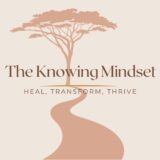
Introduction
We’ve all heard the phrase, “Fail to plan, plan to fail.” However, in a world as dynamic as ours, even the best-laid plans can come undone. So, does that mean we should toss our planners out the window and leave everything to fate? Absolutely not. The solution lies in merging our penchant for planning with the wisdom of flexibility. In this post, we’ll delve into why flexibility is critical when setting goals and creating action plans.
The Importance of Goals and Action Plans
First off, let’s affirm the irreplaceable value of setting goals and making plans. Goals serve as our life’s compass, guiding us in the direction we wish to head. An action plan is the detailed map that shows us how to reach our destination. The combination of the two keeps us focused, driven, and motivated.
The Pitfall of Rigidity
While having goals and plans is critical, an unwavering adherence to them can be counterproductive. A rigid plan doesn’t give you room to adapt when unexpected obstacles or opportunities come your way. Think about it: If a captain stuck strictly to their original course during a storm instead of navigating around it, they could sink the ship. Similarly, your plan needs to have the flexibility to navigate around life’s unpredictable storms.
Building Flexibility into Your Plan
Assess and Reassess
Make it a habit to regularly assess the viability and relevance of your goals and plans. Is what you are doing getting you closer to where you want to be? If not, it might be time to adjust your sails.
Set Mini Goals
Mini goals are smaller, more easily achievable objectives that serve as stepping stones to your ultimate goal. If an unexpected hurdle arises, you can shift your focus to a different mini goal without losing sight of your ultimate objective.
Prioritize
Life will always throw you curveballs. Knowing your priorities allows you to decide which tasks you can postpone and which you should tackle head-on, making adjustments easier and more effective.
Embracing a Growth Mindset
A growth mindset—believing that skills and intelligence can be developed—is the backbone of flexibility. This mindset encourages adaptability and resilience, two traits that go hand-in-hand with flexible planning.
Benefits of Flexibility in Goal Setting
- Increased Resilience: A flexible plan helps you bounce back from setbacks more easily.
- Enhanced Decision-Making: When you are open to adapting your plans, you can make decisions based on current circumstances rather than obsolete plans.
- Reduced Stress: Flexibility reduces the stress and anxiety that comes from dealing with the unexpected.
Conclusion
While setting goals and creating action plans are crucial steps towards achieving success, the ability to adapt and adjust those plans is equally important. Flexibility not only accommodates the unpredictability of life but also opens doors to opportunities you might not have considered. In the end, a flexible approach to planning offers the best of both worlds: the structure to keep you focused and the freedom to adapt.
